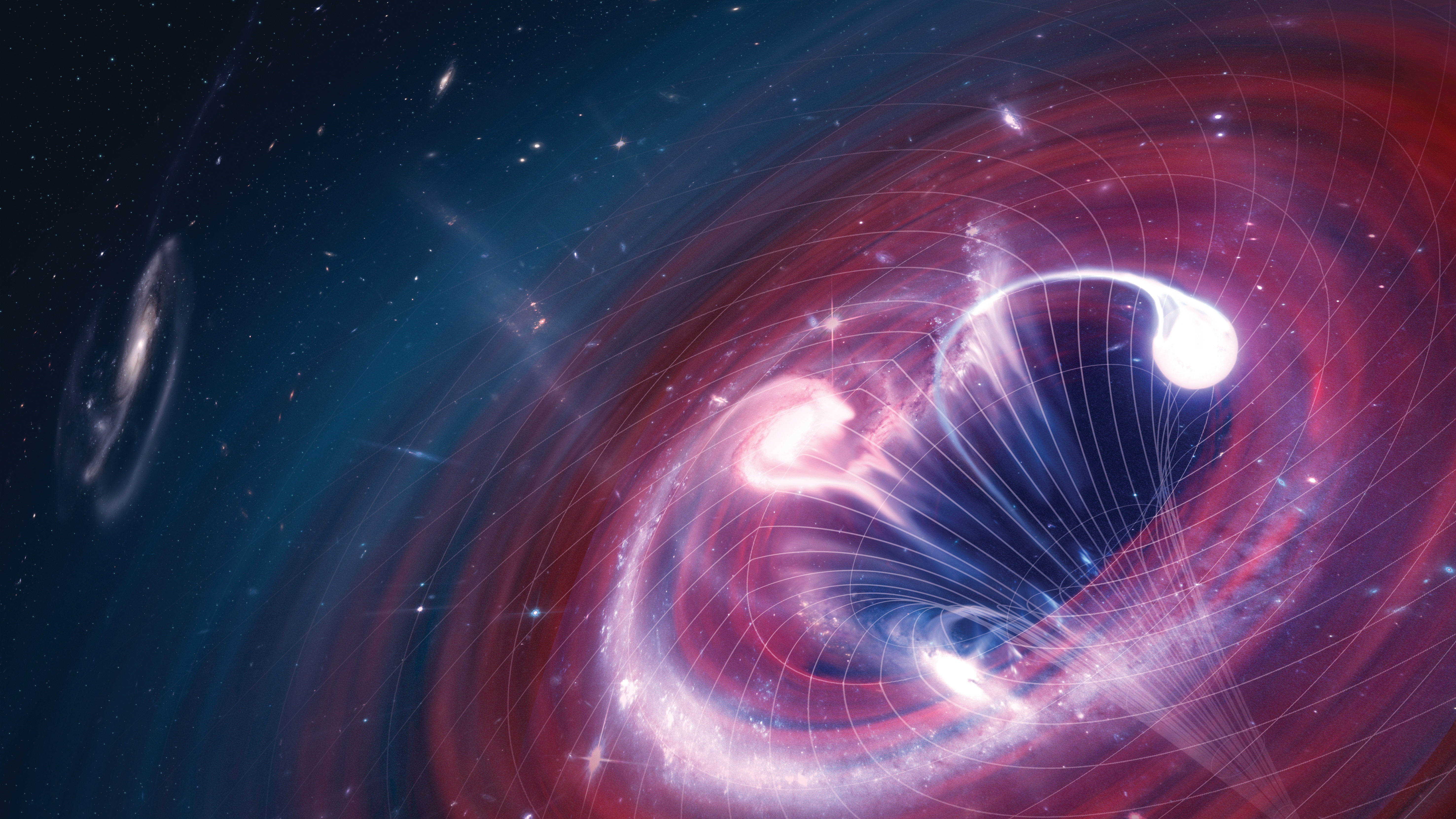Scientists discover black hole nearly 33 billion times bigger than the Sun
The discovery was possible thanks to a new phenomenon called gravitational lensing

A free daily email with the biggest news stories of the day – and the best features from TheWeek.com
You are now subscribed
Your newsletter sign-up was successful
Scientists from Durham University have discovered one of the largest black holes ever detected in the universe, and it’s 32.7 billion times bigger than the Sun.
Black holes are “rare and elusive,” even though they’re the largest objects in the universe and can measure anywhere between 10 billion and 40 billion times the mass of the Sun, reported The Herald.
This “gargantuan black hole”, at the centre of galaxy Abell 1021, is one of the biggest ever found, and with the use of the gravitational lensing, Durham scientists, led by Dr James Nightingale, were able to discover just how big the black hole actually is.
The Week
Escape your echo chamber. Get the facts behind the news, plus analysis from multiple perspectives.

Sign up for The Week's Free Newsletters
From our morning news briefing to a weekly Good News Newsletter, get the best of The Week delivered directly to your inbox.
From our morning news briefing to a weekly Good News Newsletter, get the best of The Week delivered directly to your inbox.
Gravitational lensing is a “dramatic and observable example of Einstein’s theory [of relativity]”, according to ESA Hubble, that causes light produced from a celestial body to bend around a black hole or a galaxy. The larger the mass of the object, the more the light will bend around it.
The scientists “conducted hundreds of thousands of of simulations of light moving through the Universe, altering the mass of the black hole at the galaxy’s centre, looking for results that replicate the lensing we observe with Abell 1021”, said ScienceAlert.
The size they discovered put this “cosmic colossus” as the website described it, in the top 10 largest black holes ever discovered.
Most black holes that we know about today can be seen because they pull in matter, and release “energy in the form of light, X-rays and other radiation”, said the Royal Astronomical Society (RAS).
A free daily email with the biggest news stories of the day – and the best features from TheWeek.com
However, without the visuals of warped light, inactive black holes were unable to be seen, until now.
Gravitational lensing allows scientists to measure black holes without activity, which can help “us detect many more”, added the RAS, as well as revealing “how these exotic objects evolved further back in cosmic time”.
-
 The environmental cost of GLP-1s
The environmental cost of GLP-1sThe explainer Producing the drugs is a dirty process
-
 Greenland’s capital becomes ground zero for the country’s diplomatic straits
Greenland’s capital becomes ground zero for the country’s diplomatic straitsIN THE SPOTLIGHT A flurry of new consular activity in Nuuk shows how important Greenland has become to Europeans’ anxiety about American imperialism
-
 ‘This is something that happens all too often’
‘This is something that happens all too often’Instant Opinion Opinion, comment and editorials of the day
-
 Nasa’s new dark matter map
Nasa’s new dark matter mapUnder the Radar High-resolution images may help scientists understand the ‘gravitational scaffolding into which everything else falls and is built into galaxies’
-
 Moon dust has earthly elements thanks to a magnetic bridge
Moon dust has earthly elements thanks to a magnetic bridgeUnder the radar The substances could help supply a lunar base
-
 How Mars influences Earth’s climate
How Mars influences Earth’s climateThe explainer A pull in the right direction
-
 The ‘eclipse of the century’ is coming in 2027
The ‘eclipse of the century’ is coming in 2027Under the radar It will last for over 6 minutes
-
 NASA discovered ‘resilient’ microbes in its cleanrooms
NASA discovered ‘resilient’ microbes in its cleanroomsUnder the radar The bacteria could contaminate space
-
 Artemis II: back to the Moon
Artemis II: back to the MoonThe Explainer Four astronauts will soon be blasting off into deep space – the first to do so in half a century
-
 The mysterious origin of a lemon-shaped exoplanet
The mysterious origin of a lemon-shaped exoplanetUnder the radar It may be made from a former star
-
 The 5 biggest astronomy stories of 2025
The 5 biggest astronomy stories of 2025In the spotlight From moons, to comets, to pop stars in orbit